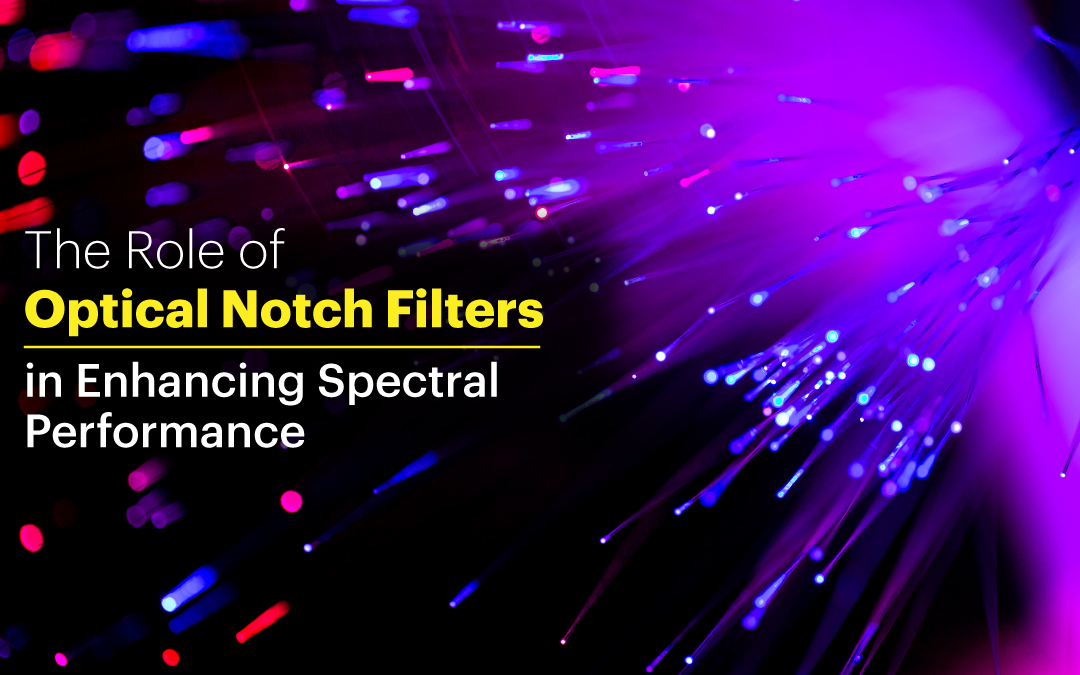
In the realm of optical manufacturing, precision is paramount. As industries push the boundaries of technological advancement, the need for fine-tuned control over light spectra becomes increasingly crucial. This is where optical notch filters step in, revolutionizing the way we manipulate light for a multitude of applications. Let's delve into the intricacies of optical notch filters and explore how they play a pivotal role in enhancing spectral performance across various industrial sectors.
Understanding Optical Notch Filters
Optical notch filters are sophisticated optical components designed to selectively block specific wavelengths of light while transmitting others with minimal loss. This unique capability makes them indispensable in applications where precise spectral control is required. Unlike conventional filters that operate based on absorption or reflection, optical notch filters leverage interference phenomena to achieve high spectral precision.
The Science Behind Notch Filters
At the heart of optical notch filters lies the principle of interference. These filters are typically composed of multiple thin-film layers with varying refractive indices. When light passes through these layers, constructive and destructive interference occurs, leading to the suppression of certain wavelengths within the transmission spectrum. By carefully engineering the thickness and refractive index of each layer, manufacturers can tailor notch filters to target specific wavelengths with exceptional precision.
Applications Across Industries
The versatility of optical notch filters makes them indispensable in a wide range of industrial applications. In telecommunications, they play a crucial role in wavelength division multiplexing (WDM) systems, where they help isolate individual channels within optical networks, ensuring efficient data transmission. In spectroscopy, notch filters enhance the accuracy of measurements by eliminating unwanted background noise and isolating spectral lines of interest. Moreover, in laser technologies, these filters enable precise tuning of laser output, enhancing performance in fields such as materials processing, medical diagnostics, and scientific research.
Advantages of Optical Notch Filters
One of the primary advantages of optical notch filters is their ability to provide high spectral resolution without compromising signal intensity. Unlike traditional absorption filters, which absorb unwanted wavelengths and dissipate them as heat, notch filters selectively reflect unwanted light, preserving the integrity of the transmitted signal. This results in minimal signal loss and superior spectral purity, essential for demanding applications where precision is paramount.
Future Trends and Innovations
As the demand for advanced optical technologies continues to grow, so does the need for enhanced spectral performance. Manufacturers are constantly innovating to push the boundaries of notch filter technology, striving for even higher levels of precision and efficiency. Emerging trends include the development of tunable notch filters, which offer greater flexibility in spectral control, as well as advancements in nanofabrication techniques, enabling the production of notch filters with unprecedented levels of precision and uniformity.
Conclusion
In the fast-paced world of optical manufacturing, precision is the key to unlocking new frontiers of innovation. Optical notch filters stand at the forefront of this technological revolution, offering unparalleled control over light spectra and driving advancements across a multitude of industries. As we continue to push the boundaries of what's possible, the role of notch filters in enhancing spectral performance will only grow more significant, paving the way for a future illuminated by precision and possibility.
Share this post
Leave a comment
All comments are moderated. Spammy and bot submitted comments are deleted. Please submit the comments that are helpful to others, and we'll approve your comments. A comment that includes outbound link will only be approved if the content is relevant to the topic, and has some value to our readers.

Comments (0)
No comment